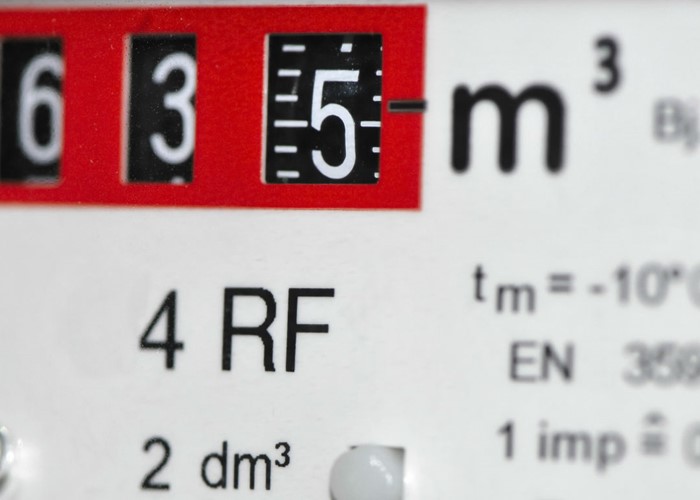You're being overcharged for your gas!

Inaccurate gas meters mean millions of us are paying too much.
A large number of gas meters that energy providers rely on to measure our energy usage may be inaccurate, resulting in millions of us overpaying on our energy bills.
According to a leaked report, up to one in six of the older meters employed by the National Grid are ‘over-registering’ – in other words, suggesting you are using more energy than you actually are. Indeed, the report suggests the majority of older meters tested had demonstrated accuracy problems.
The problem meters
So which meters are the ones to worry about?
The report suggests that the 1983 and 2000 models are ones to be concerned about, with 88% of one particular 1983 model over-registering, and 69% of one 2000 model also doing so.
In fairness to National Grid, it has said that it is targeting the worst-performing meters as part of its upgrade programme. However, clearly many are still out there in use.
How much it’s costing you
The average family would fork out an extra £13 a year if their meter over-registered by 2%, though with 3% of dodgy meters over-registering by more than double that, if you’re unlucky it could set you back far more.
An old problem
Sadly, issues with gas meters are not exactly new. National Grid owns 75% of the nation’s 23m meters, and has something of a chequered past. In 2007 it ran checks on almost 5,000 of its oldest or least reliable meters, finding that one in six were not up to scratch. Two years later, and it emerged in the national press that nothing had changed.
And in 2008, National Grid was whacked with an extraordinary £41.6m fine by OFGEM, the energy regulator, for preventing widespread installation of gas meters that gave households more detailed information on their energy consumption, helping them to lower their bills. National Grid signed deals with a number of residential gas suppliers, which included clauses that meant the companies would be hit with penalties if they replaced more than a small number of older meters at a time.
Related blog post
- Marghaid Howie writes:
Now's the time to change your energy tariff
With the possibility of further energy price hikes later in the year, now could be the time to lock in to a fixed tariff.
Read this post
So when it comes to energy meters, it’s clearly best to be on your toes.
Checking the accuracy
If you are concerned about the accuracy of your gas meter, what should you do?
You can arrange for your meter to undergo an accuracy test, to see whether it is up to scratch. To do so, you’ll need to contact your gas supplier. They will then arrange for National Grid Metering to carry out an accuracy test.
National Grid reckons the industry replaces around 500,000 meters each year.
Smart meters
The authorities hope that the answer to such inaccuracies in the future will be smart meters. These will replace the existing meters we all rely on, with the Government hoping to have them in every home by 2020.
Installation has already begun in some homes, with a couple of energy providers jumping on board early.
Here’s the big idea – smart meters work by communicating directly with the supplier. Electronic meter readings will be sent to your supplier, automatically.
The plan is that these meters will make life a lot easier, as there will be no more estimated billing, and you won’t have to worry about being at home when the gas man comes to check the meter. What’s more, as the energy companies will be able to run more efficiently, this may even lead to lower electricity prices (ok, so pigs might fly as well, but we can hope at least).
Of course, with nine years to go until they are in all of our homes, it’s best not to get too excited about the prospect of more accurate, and hopefully cheaper, bills just yet.
Rachel Robson gives you the lowdown on five ways to cut your energy bills
Thankfully there are some simple steps you can take to ensure that you are spending as little as possible on your energy needs.
Sign up for a cheaper tariff
The most obvious thing to do is to check that your deal is the most competitive.
The entry of two new players in recent times, First:Utility and OVO Energy, has shaken up the market somewhat, with the so-called 'Big Six' providers given a bit of fresh competition. Both have recently held the top spot for the cheapest tariff in the UK, so they are well worth checking out.
It only take a few minutes to search for a new tariff on our price comparison tool, and it's well worth it - the average saving reported by lovemoney.com readers is a cool £215. Not bad in anyone's book!
Easy ways to cut your bills
Of course, there are some very easy things you can do in your own home which can have a real impact on the size of your bill.
We've put together a comprehensive round-up of how you can reduce your energy expenditure, from things like energy-saving lightbulbs to fiddling with your thermostat, in this how to guide: Cut your energy bills.
More: Seven steps to cheap life insurance | You’re wasting money on your broadband
Comments
Be the first to comment
Do you want to comment on this article? You need to be signed in for this feature